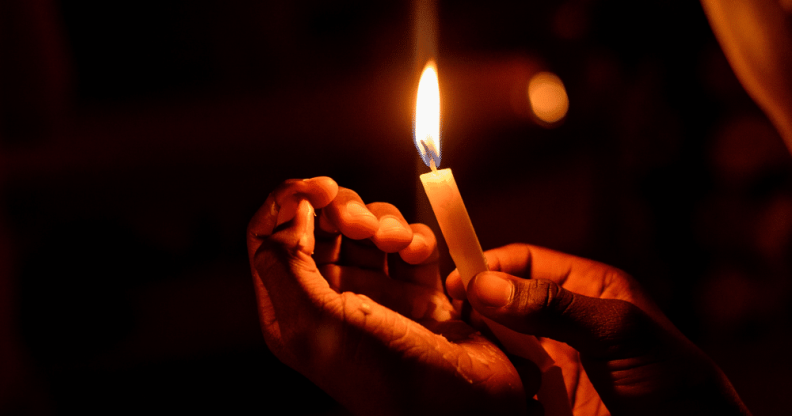Meet the activist making sure unsolved LGBT+ missing persons cases aren’t forgotten about

At least 50 trans people have been murdered in the US in 2021. (Pexels)
A Colorado activist has launched a grassroots project to highlight trans and queer missing persons cases.
When Lazarus Rise started studying criminal justice and forensics, he began to investigate old local cases. Among them was a decades-old case of a missing woman, whom authorities called Julie Doe and believe was killed in Florida in 1988. Investigators originally thought she was cisgender and only learned that she was trans after DNA testing in 2015, changing the landscape of the case.
Rise was unable to complete his degree, however, he still wanted to utilise the skills he had learned. Julie Doe’s case stuck with him, and made him wonder how many other times trans potential murder victims had been misgendered, when their gender identity may have played a part in the killings.
“How many other people are out there like that — unidentified — that could have been trans, but you never know it because they can’t speak for themselves anymore?” Rise said to KUSA. “So, it really started making me think about all the people that have gone missing and unidentified that no one ever noticed or cared about it.”
Rise started his Facebook page in April 2020. It has received over 1000 likes and examines a range of cases including ones which have been closed and cold for decades, and ones which are still under investigation.
Recently, the page has highlighted the missing persons cases of 25 year old Indigenous woman, Aubrey Dameron, and Texan Baby James Dawson, both trans.
Rise page points this out: while the page covers LGBT+ cases, it has an especially “strong focus on missing and unknown transgender/gender non-conforming individuals.”
“There is such a lack of representation, especially with queer, Black and brown people,” Rise, who is trans, told KUSA. “No one really cares, and it is such an injustice. So if I could do whatever I can and just put my articles out there and just get people to read and talk about it, then I’m doing my job.”
At least 50 trans, non-binary and gender non-conforming people, the majority of them Black, have died by violence in the US this year, making 2021 the deadliest year on record for trans people, according to the Human Rights Campaign.
The issue is a global one. Fatal transphobic violence is monitored by the Trans Murder Monitoring Project (TMMP). This year, the project record 375 deaths of trans and gender-diverse people, a record. This accounts for more than one person killed every day and is an increase of seven per cent on the previous year.
Since trans people are often misgendered in death, even this staggering figure is likely to be an underestimate. A report released last month by Human Right Campaign found that in about 80 per cent of reported deaths since 2013, trans victims were initially misgendered by the media or law enforcement-
Rise hopes that his page will ensure that missing and unidentified trans people are referred to using their correct pronouns and names. So far, there remains much work to be done.
“Trans people, they fight hard for their identities and their names, so it’s the least I could hope is to give that back to them in hopes that they can be respected in death,” Rise said.

